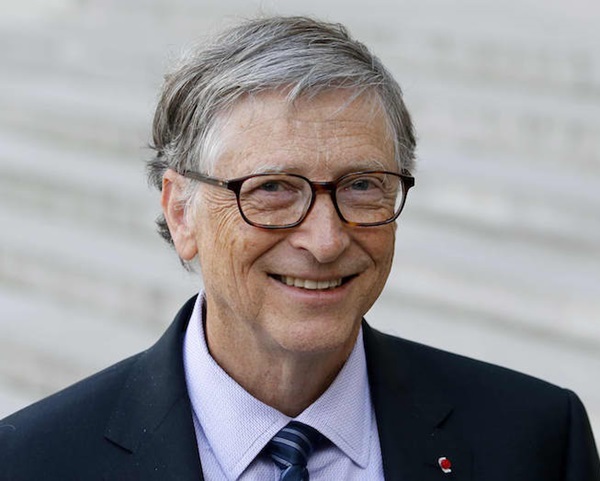
The Bill & Melinda Gates Foundation (BMGF) has emphasised Nigeria’s immense potential to significantly boost its agricultural sector and improve its healthcare system, calling these areas transformative opportunities for the country.
Philanthropist and co-chair of the foundation, Bill Gates made these remarks on Tuesday in Abuja during the 2024 NutriVision, a Pan-African dialogue focused on innovative solutions to combat malnutrition across the continent.
In his keynote address, Gates underscored Nigeria’s capability to more than double its food output, a move he described as potentially revolutionary for the nation. “There’s a tremendous opportunity for Nigeria to more than double its food production,” Gates stated, highlighting that such an increase would position the country as a net food exporter. This shift, he noted, could alleviate Nigeria’s reliance on importing food, thereby conserving foreign currency reserves and potentially generating revenue through food exports. “Instead of expending scarce foreign currency on food imports, Nigeria could earn revenue from food exports, thus boosting the economy and improving the livelihoods of rural and northern communities,” Gates explained.
He advocated for investments in agricultural productivity and healthcare as crucial to achieving food security and economic growth. Gates emphasised that embracing digital technologies and utilizing improved seed varieties could trigger what he termed “agricultural miracles.” These advancements, he argued, are essential for addressing equity issues, empowering women and tackling nutritional challenges in Nigeria.
“The role of improved agricultural practices cannot be overstated,” Gates continued. “By focusing on better seeds and digital solutions, Nigeria can achieve significant improvements in food security and contribute to broader social and economic development.”
Gates also highlighted the critical role of healthcare in Nigeria’s progress. He urged the government to prioritise health within its broader strategic framework and increase funding for health and education. “Current tax collection rates in Nigeria are quite low. As citizens gain confidence in well-managed programs, they are more likely to support increased funding for essential services,” he observed. He pointed out that efficient primary healthcare systems, where resources are well-allocated and services are effectively delivered, are crucial for improving health outcomes.
“Our foundation is involved with many exemplary programmes that demonstrate how to effectively use resources to run efficient primary healthcare systems. It’s about ensuring that health centres are appropriately staffed and well-resourced, avoiding both underutilisation and overloading,” Gates elaborated.
He expressed optimism that by learning from global best practices and adapting them to local contexts, Nigeria could drive significant progress in agriculture and healthcare. Gates painted a hopeful vision of a future where Nigeria not only meets its food needs but also plays a significant role in nourishing the world through strategic investments and a focus on people-centered development.
Science Nigeria reports that the Bill & Melinda Gates Foundation believes that Africa’s most pressing challenges can be addressed by solutions originating within the continent. This belief underpins the foundation’s support for African partners whose innovative ideas and approaches have the potential to effect meaningful change. Since its inception in 2000, the foundation has collaborated with African regional institutions, national governments, and local communities in 49 countries, providing funding and scientific expertise to support their agendas for change.
These partnerships have been instrumental in advancing numerous health, agriculture, equality and anti-poverty initiatives. The foundation has pledged more than $7 billion through 2026 to support African countries and institutions in developing and implementing innovative strategies to combat hunger, disease, gender inequality and poverty.
The foundation’s work spans collaborations with governments, the private sector, non-profit organisations, and civil society to improve health outcomes, enhance agricultural productivity, expand access to digital financial services and empower women and marginalised populations. By fostering these partnerships, the foundation aims to contribute to sustainable development and transformative change across Africa.

